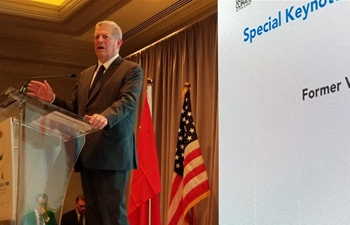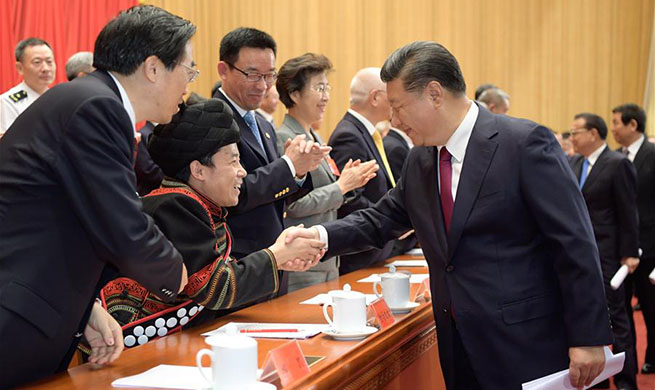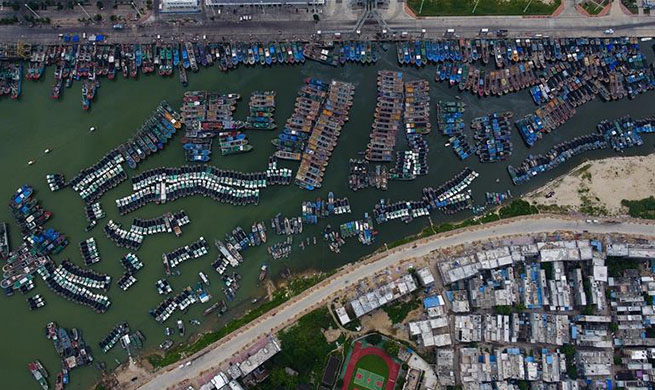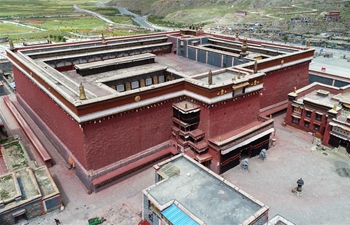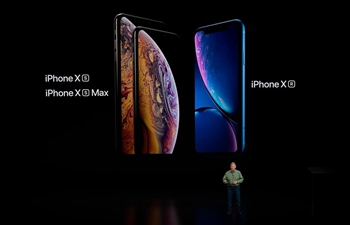by Mahmoud Fouly
CAIRO, Sept. 14 (Xinhua) -- Since President Donald Trump took office last year, his administration has adopted an isolationistic foreign policy representing its retreat from international bodies and commitments.
Washington withdrew from the UN Educational, Scientific, and Cultural Organization (UNESCO) in October last year, then it abandoned the UN Human Rights Council (HRC) in June and finally announced in late August to stop funding the UN Relief and Works Agency for Palestine Refugees.
The three moves have been made in favor of Israel, as announced by Trump's administration that accused the UN agencies of being biased against the U.S. number one regional ally.
Trump's administration has recently threatened to impose sanctions against the International Criminal Court (ICC) that seeks to try U.S. soldiers over alleged war crimes in Afghanistan.
ISOLATIONIST POLICY
The "America First" theme raised by Trump indicates isolationist tendencies that are reflected on the general U.S. foreign policy under his rule, undermining multilateralism and joint international cooperation.
Mohamed Fayez Farahat, a political expert and researcher at Cairo-based Al-Ahram Center for Political and Strategic Studies, said that such U.S. policies negatively affect unilateralism and globalization that have long been adopted by the United States.
"This U.S. attitude is related to Trump's general disbelief in institutional structures, not only internationally but domestically as well," Farahat told Xinhua, citing that Trump had confrontations with some U.S. departments like the Department of State, which ended up with sacking former U.S. Secretary of State Rex Tillerson.
In December 2017, the United States vetoed the UN draft resolution that aims to protect the status of the disputed city of Jerusalem and halt Trump's decision to recognize Jerusalem as Israel's capital and to move the U.S. embassy in Israel from Tel Aviv to Jerusalem.
Although vetoed by Washington, the draft resolution was backed by all other 14 members of the UN Security Council, indicating Washington's isolationism and declining role as the main peacemaker in the Israeli-Palestinian conflict.
"U.S. sponsorship of Israel is one of the main factors that affect Trump's policies," Farahat noted.
Trump's moves are not only politically motivated but are manifested in his approach of economic organizations and trade agreements to which Washington has always been committed.
Commercially, withdrawing from the Trans-Pacific Partnership (TPP) agreement was one of the U.S. administration's big moves upon Trump taking office in January 2017.
But the U.S. president seems to have realized it was not in Washington's favor, so he made a U-turn and proposed rejoining the TPP later in April.
The United States has also been waging trade wars against world economic partners, imposing exaggerated tariffs on the commodities imported to the United States and threatening to withdraw from the World Trade Organization (WTO) over anti-U.S. bias claims.
"Trump's skepticism about world organizations in general has become stronger, reflecting his unilateral understanding of the international system and its structures," said the researcher.
IMPEACHMENT THREAT
Trump's administration is facing several domestic challenges that are threatening his post as president after some voices raised demands for his impeachment and removal from office over Russia's involvement in the latest presidential elections that brought him to the White House, besides other issues.
However, since the pro-Trump Republicans dominate both the House and the Senate, Trump's impeachment seems remote.
Noha Bakr, professor of political sciences and international relations at the American University in Cairo, believes that Trump's policies are meant for propaganda to divert the U.S. public opinion to other issues pressuring him.
Trump's recent attitude against the ICC coincides with his closure of the Palestine Liberation Organization office in Washington.
"It also precedes the upcoming U.S. Congress midterm elections that will be held in November, in which if the Republicans manage to maintain control, Trump's removal will be almost impossible," Bakr told Xinhua.
"The U.S. president is currently mobilizing for securing a majority of votes for the Republicans to have the White House in one hand and the Congress in the other," said the professor.

